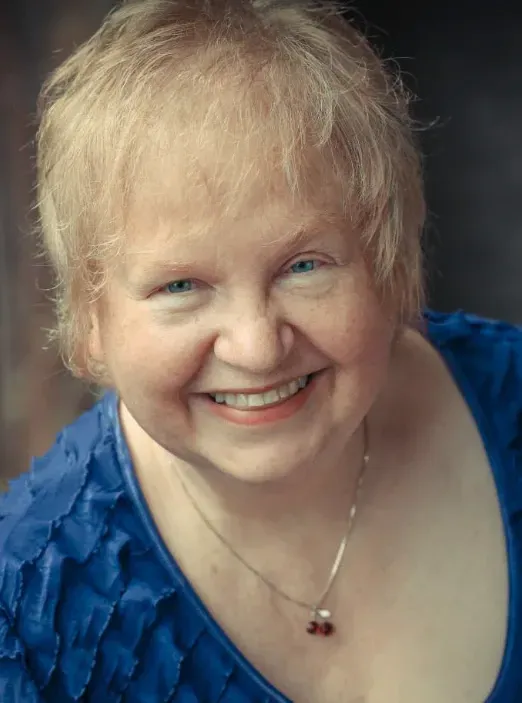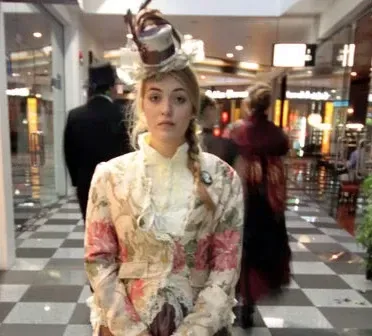Her life in art: Lisa Warrington

In 1981 Lisa Warrington arrived in Dunedin for a three year contract: the sole lecturer position in theatre at Otago University’s Allen Hall. Thirty seven years later, she’s departing her role of Associate Professor of Drama, with legions of graduates and an entire department having grown up around her. Meanwhile, her own career as a director and researcher continues to thrive, with no sign of decline. “I never wanted to sit in the corner and quietly grow old,” she recently told TBI editor James Littlewood. Little chance.
Congratulations on a brilliant career. What were the challenges?
The challenges in the early days were that I was on my own, so that I nad no help of any kind. I did everything. I was the lecturer, the administrator, I ran Allen Hall as far as I could, did all the programming for the theatre there, I did everything. While I was doing that I was also working at the Fortune Theatre as a director. So, luckily for me I just don’t have an actual private life.
And we made our presence felt. Because in the early days we always had Lunchtime Theatre, which was special. I had to get it up and running again, and I also changed the focus of Lunchtime Theatre, because when I arrived in New Zealand from Australia where I’d been teaching and directing, I knew that I wanted to champion and promote NZ theatre. And when I started in 1981 that was a very different prospect to what it is these days.
There was hardly any New Zealand theatre being done in any of the theatres. And so few writers had yet been encouraged to create work and put it on.
I was very keen as time went on to promote New Zealand work. We also went out and actively commissioned playwrights to write plays for Lunchtime Theatre, which was significant. People like Renee, Hone Kouka, Gary Henderson.
How did you teach New Zealand theatre in that environment?
The significant moment is when they started publishing plays. Playmarket began in the 70s, and they’re such a key institution in NZ theatre. They did an enormous amount to evolve and develop. And recently, they began publishing a lot of scripts, which is a godsend and genius thing to do. But in the early days, there were virtually no published plays. A few of them would sort of creep through, like Foreskin’s Lament was published. Renee’s Wednesday to Come was published.
So you were wholly reliant on commercially published material?
Yeah. It makes a huge difference, because there was so little of it. These days we less depend on it being published, because we can make arrangements with Playmarket for example, who then approach the playwright and get permission to teach the plays which haven’t yet been published. And that makes a big difference as well.
With Lunchtime Theatre in particular, I was very keen as time went on to promote New Zealand work. That was about promoting original work written by students which has now become the backbone of Lunchtime Theatre. We also went out and actively commissioned playwrights to write plays for Lunchtime Theatre, which was significant. We published a volume of some of the first plays that we commissioned, a volume called Playlunch.
The ones I find the most exciting to watch are people who may never become famous actors or whatever. But people who have tried a lot of other subjects but have never done particularly well because they don’t have a lot of passion for them, and have found that theatre has really transformed them in all sorts of ways.
Who were some of the writers involved in that?
People like Renee, Hone Kouka, Gary Henderson, usually playwriting fellows who’d write a play for Lunchtime Theatre. Amanda Cartwright, who’s an American playwright, has written a number of pieces which she’s put into the Lunchtime Theatre programme.
What drives the hunger among students wanting to do drama?
The ones I find the most exciting to watch are people who may never become famous actors or whatever. But people who have tried a lot of other subjects but have never done particularly well because they don’t have a lot of passion for them, and have found that theatre has really transformed them in all sorts of ways. Even if they never go on to theatre careers, they can still use that passion, and use what they’ve done at Otago in their lives.
Much of your work has a strong naturalist theme. I’ve always admired your ability to balance that with what your students serve up, which is often down the wackier end of town.
I would challenge your assumption that I only do naturalism. I absolutely believe in truth on the stage. How that truth is represented might be in many many ways. Every director will have their own particular interests, and I believe we encourage students in the kind of work they need to - how did you describe it - wackiness, outlandish aesthetic perhaps. I believe everyone should do whatever they want to do as part of their creative process.
What it all boils down to, what an actor has to be able to do beyond all else, is listen. To listen, to absorb, to reflect, to feedback, and to work very closely with their scene partner. I think that one of the key things we teach is improvisation, which to me gives you about all of the skills you could ever need as an actor. If you don’t listen, and if you don’t support your partner in the scene, by really actively listening and then engaging in what goes back and forth between you, then you’ve got nothing.
The Fortune ran on the smell of an oily rag. The company was cut down to its bare bones in many respects. That was partly a result of not wanting to close the theatre down of course. But it’s also what funding dictates.
How do your students see the theatre industry?
I can’t speak for the students. I do think the prospects of what’s laid before them are becoming limited. In the old days (let’s call them), people went out there knowing that they may never work with the mainstream theatre companies. So what they would do instead was form their own cooperative and make their own work, wherever they could. I think that passion and spirit is still equally strong now.
Not everybody is going to, or may even want to, work for a mainstream theatre. And the number of full time professional mainstream theatre companies is rapidly shrinking. And it’s not just the theatres. We’ve also just not long ago lost P.I.P.A. school for Pasifika students, which was pretty detrimental to the greater picture.
If you want the freedom of an independent spirit, then you have to become a co-operative.
The Fortune ran on the smell of an oily rag. The company was cut down to its bare bones in many respects. That was partly a result of not wanting to close the theatre down of course. But it’s also what funding dictates.
If you want the freedom of an independent spirit, then you have to become a co-operative, because most professional theatres are driven by the need to make money through the box office, to have money coming in the doors. And so you can take some risks, and some companies really do. But you also have to programme the safe options. You have to make the money.
What’s exciting you in NZ theatre at the moment?
I guess for me personally, what I’m finding exciting is theatre in non traditional venues. One project that Wow! did in 2015 was called Farley’s Arcade. It took three years of planning to get it off the ground. We used the Athenaeum building in the Octagon. It was about a 19th century shopping arcade that no longer exists. So we recreated this arcade, and made it an interactive experience for the audience, who moved from place to place to place, going lower and lower into the building as we went further back and back in time.
We also made it a chance to explore the history of Dunedin, through a commissioned melodrama, through elements of Maori settlement and what that meant, and how those have been buried. As we go further down in the building and back in time, we begin to uncover more of those elements. It’s something which you can’t really do in a normal theatre.
People talk about, oh, what about hologram performances and so on? But what the hell’s all that about? Who cares if a completely non present hologram is in the room with you?
Change one thing about NZ theatre: what would it be?
Fucking hell! I don’t know that I would change anything about it. Sometimes I think why are we doing theatre at all. Is it a dead art? And all you have to do is go into a theatre, engage with an audience, and suddenly you discover the point immediately: there’s nothing that beats live engagement. The presence, the being there, I can’t believe you can ever replace that.
People talk about, oh, what about hologram performances and so on? But what the hell’s all that about? Who cares if a completely non present hologram is in the room with you? They’re never really in the room. So I wouldn’t change.
Tell us about Theatre Aotearoa?
My objective is to enter into this database every piece of theatre that has ever been done in New Zealand from the 1840s to the present day. That’s a lifetime’s work for a lot of people, but it keeps me interested in theatre.
All the best!
I’m riding a sort of wave, feeling that I’m still working. I never wanted to sit in a corner and just quietly get old. I've got the opportunity to enjoy the kind of creative work that I love to do.
You can join Lisa by not sitting in the corner growing old, and instead checking out Remarkable Theatre and their upcoming season of Away, by Michael Gow, directed by Lisa.
You can - and should - also check out Theatre Aotearoa, the encyclopedic database of “every piece of theatre that has ever been done in New Zealand from the 1840s”. Indeed, you may even be in it.
